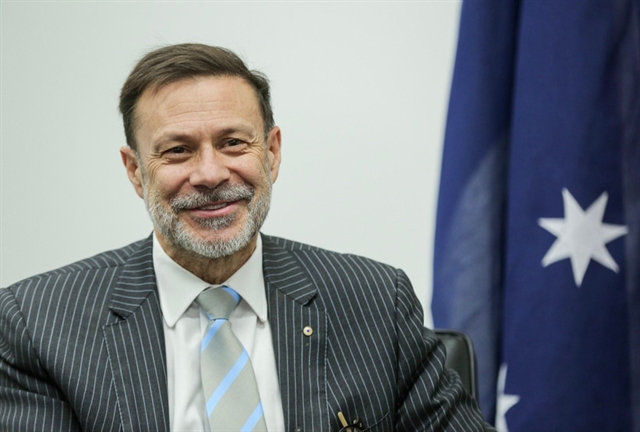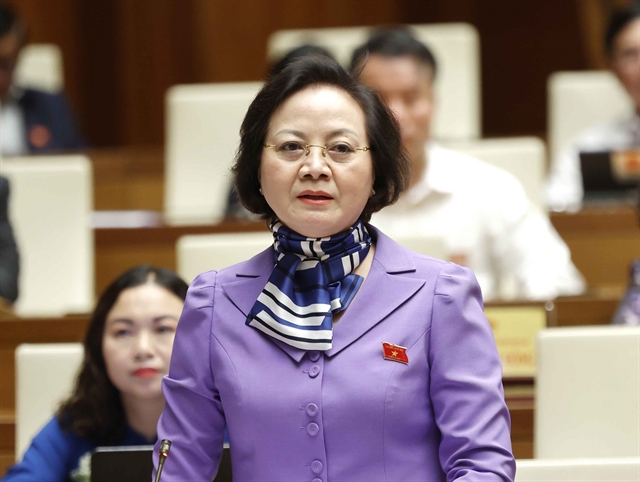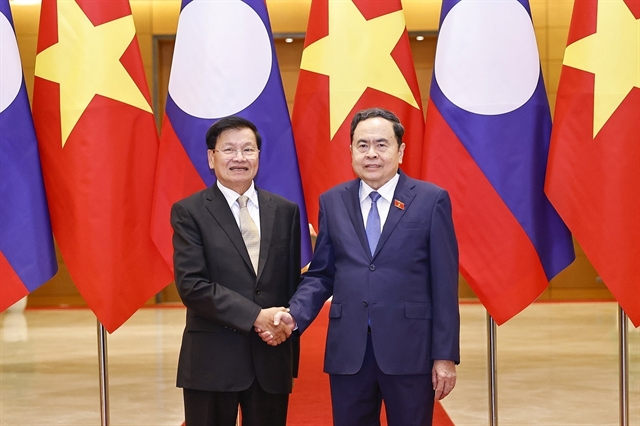 Opinion
Opinion

 |
| Minister of Home Affairs Phạm Thị Thanh Trà. — VNA/VNS Photo |
Minister of Home Affairs Phạm Thị Thanh Trà speaks to Vietnam News Agency about salary reforms taking place from July this year.
After a salary reform delay, the new policy will be implemented from July 1 this year. Millions of officials, civil servants, public employees and workers are looking forward to the reform. How will their salaries be changed?
This is one of the biggest tasks of the Ministry of Home Affairs in 2024. When talking about salary reform, the first thing everyone thinks of is getting an increase.
This is also what I and millions of officials, civil servants and public employees, expect.
It is expected that the average salary of officials, civil servants and public employees will be increased by about 30 per cent (including basic salary and allowances). From 2025, the rate will continue to be adjusted to an average annual increase of about 7 per cent per year.
Although we have not made any salary reform in the past three years, we have risen the base salary twice by 29.5 per cent.
So, from 2021 - the expected timeline to implement salary reform following Resolution No. 27-NQ/TW - to July 1, 2024, the salaries of officials, civil servants, and public employees are scheduled to increase about 60 per cent on average.
Although this figure is not outstanding, it is still a significant increase compared to the average annual increase of 7 per cent before the salary reform is implemented.
This demonstrates the great efforts of the Government, as well as the Ministry of Home Affairs, other ministries and sectors in implementing wage policy reform following the 12th-tenure Party Central Committee’s Resolution 27, especially in the context of a limited budget and a difficult economic situation impacted by COVID-19.
Wages of healthcare and education workers have been proposed to be higher than other professions. Could you elaborate on the salary raise of officials, civil servants and public employees in various fields, especially in those two sectors?
A salary reform change is that the salaries of public employees, especially education and health officials, will be higher than the average level of civil servants and public employees.
This is because we are making the salary policy reform associated with implementing the resolution on basic and comprehensive development of education, training and healthcare. After the COVID-19 pandemic, it is necessary to pay more attention to improving the lives of teachers and physicians.
While working on the salary reform, we will coordinate with the Ministry of Education and Training and the Ministry of Health to request competent authorities to make adjustments to ensure that salaries (including allowances) of teachers and health workers will increase in accordance with job requirements and positions, at the same time, show preferential incentives for these two professions.
Could you elaborate on salaries for officials, civil servants and public employees in specific units?
According to Resolution 27, in the future, we will abolish mechanisms and policies on specific wages and income.
Currently, there are 134,284 officials and civil servants working at the State administrative agencies and units applying special financial and income mechanisms (with salary increases beyond the general regime from 0.66 time to 2.43 times).
This number accounts for about 6.78 per cent of the total payroll of cadres, civil servants and public employees of the country.
When abolishing specific salary and income mechanisms and policies, they will enjoy new rates of salaries, including allowances, that may be lower than that before the salary reform. Therefore, to ensure their benefits, we have calculated and advised the competent authorities to consider and maintain their current salary and specific income.
It means that the new rate of salary, including reservations, is not lower than that before the salary reform, ensuring equality among beneficiary employees before and after the reform.
To implement the salary reform, one of the ministry’s tough tasks assigned by the Government in 2024 is to complete the job position description in March. What has the ministry done to complete the task?
The Ministry of Home Affairs has coordinated with the Party Central Committee’s Organisation Commission, which is in charge of advising on building job positions in the political system, as well as other ministries, sectors and localities to make relevant instructions and try to complete before March 31 to promptly develop a salary plan and apply the new salary policy from July 1.
The ministry has instructed public agencies and administrative organisations to build and perfect the job position system "as a basic solution to make the salary reform”.
This is the heaviest and most stressful task of salary reform implementation, but the ministry will work with others to accomplish it on schedule.
What are the next steps to implement salary reform?
In the near future, the Politburo will consider and approve policies and principles on the new salary policy of the entire political system.
It will serve as a basis for agencies and organisations to issue documents on salary regimes.
The Ministry of Home Affairs is actively advising on the building a decree on a new salary regime for people working under the Government's authority.
The ministry is giving consultations to competent authorities to build a payroll system including basic salary accounting for 70 per cent and allowances 30 per cent of the total salary budget.
There will be an additional 10 per cent of the basic salary fund for rewards. Agency leaders have the right to issue mechanisms on the fund use to hire experts, attract and utilise talents in the public sector.
The Ministry of Home Affairs will coordinate with the Ministry of Finance to adopt an institutional system as a basis for ministries, sectors and localities to use this budget source to attract and utilise talented people in the public sector. VNS





 Brandinfo
Brandinfo